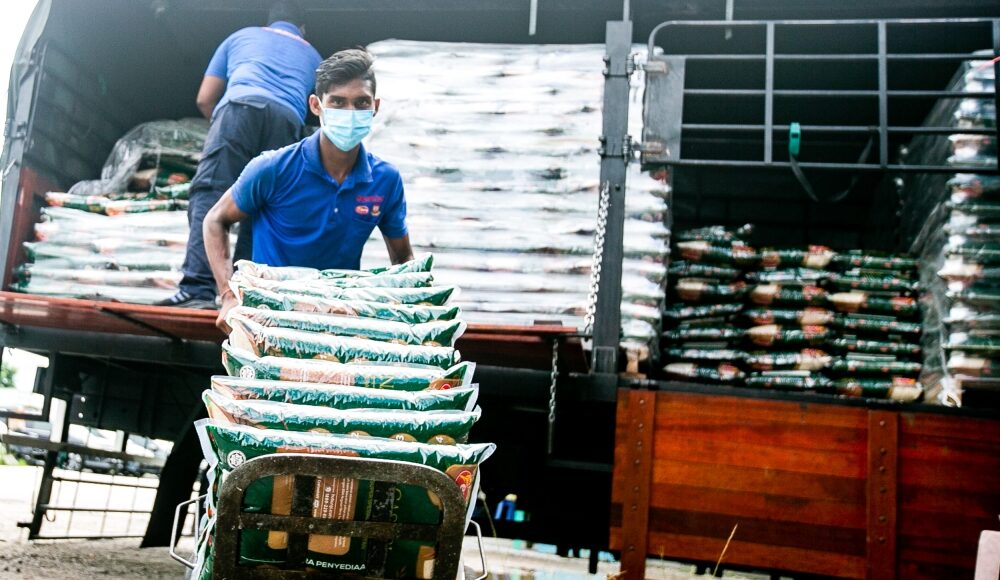JUNE 4 — Food security has become a significant concern in Malaysia, particularly concerning current global developments.
Rising costs and a reliance on imports make it harder for many Malaysians, especially those in the B40 category who are already impoverished, to obtain reasonably priced, wholesome food.
The ongoing global food crisis, which has been made worse by disruptions brought on by pandemics, geopolitical conflicts, and climate change, has also affected Malaysia.
According to the Department of Statistics Malaysia (DOSM), more than 60 per cent of Malaysia’s staple goods, including rice, wheat, and dairy products, are imported.
Since food prices increased by 8.9 per cent in 2023 alone, even a little increase in worldwide prices results in a greater cost of living for people here.
This strain is challenging for B40 households, who spend over one-third of their income on food.
Enhancing agriculture as a community-based approach to boost food security
Given this, Prime Minister Anwar Ibrahim has underlined the need for self-sufficiency as a crucial element of Malaysia’s food security strategy.
Though initiatives to expand domestic farming have shown potential, rapid development is hampered by structural issues such as smallholder farms’ small size and high running costs.
Additionally, the movement towards agritech has accelerated, with projects supporting smart irrigation, vertical agriculture, and sustainable agricultural methods.
However, time and substantial financial commitment are needed for these endeavours. The farming industry in Malaysia, which now accounts for less than 10 per cent of GDP, would require significant reorganisation to facilitate a substantial rise in self-reliance.
Food security has become a significant concern in Malaysia, particularly concerning current global developments. — Picture by Hari Anggara
Insights from global models
Similar issues have prompted aggressive actions from several countries.
For instance, by integrating technology, Japan has effectively reduced its need for food imports. Japan has experienced a 15 per cent boost in agricultural productivity via robotic farming and precision agriculture techniques, dramatically reducing its reliance on imports for staple foodstuffs.
The urban agriculture approach in South Korea also provides insightful information. Rooftop and communal gardens have been established in Seoul, giving city dwellers access to fresh vegetables while easing the burden on food imports.
This strategy is mirrored in a pilot project in Penang that started in 2023 and has shown promise in urban areas; nevertheless, growth is required to have a quantifiable impact across the country.
Meeting the B40 households’ needs
In this regard, the increase in food prices increases the danger of starvation and malnutrition among Malaysia’s most vulnerable people, especially the B40.
While community-based food banks have lessened part of this load, a more comprehensive strategy is required.
Programmes such as Bantuan Sara Hidup (BSH) and MyKasih have provided short-term respite, although they are sometimes insufficient considering the food inflation rate.
Experts increasingly call for subsidies primarily for necessities to help those with lower incomes.
According to economist Datuk Mohd Salleh, “financial assistance should go hand-in-hand with capacity-building programmes that empower communities to grow their food,” underscoring the significance of social protection in ensuring food security.
In Malaysia’s densely populated areas, expanding urban farming programmes might give low-income families additional sources of income and a sustainable way out of food reliance.
Setting out on a new path
Malaysia must address both short-term demands and long-term risks to increase food security. Although attempts to fix prices through subsidies could offer temporary respite, a revolutionary approach emphasising independence and creativity is necessary.
Apart from that, Malaysia’s food industry may greatly benefit from the resources offered by the FAO’s Global Initiative on Food Security, which supports sustainable agricultural production, especially in crop diversity and sustainable water management.
To sum up, Malaysia has to actively encourage local agriculture while reforming its policies to address food insecurity.
By reducing its reliance on foreign markets, Malaysia should better safeguard its citizens from price shocks and ensure that food is constantly available and affordable, especially for those in the B40.
* Datin Seri Prof Dr Suhaiza Hanim Datuk Mohamad Zailani is the Director of the Ungku Aziz Centre for Development Studies, Universiti Malaya. She may be reached at [email protected].
** This is the personal opinion of the writer or publication and does not necessarily represent the views of Malay Mail.





